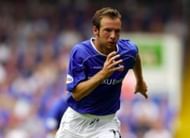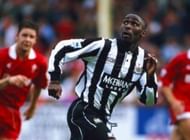
For the majority of English football clubs that secure promotion to the Premier League from the Championship, securing their top-flight status is often the sole objective for their first campaign back. Whether it’s a former Premier League regular making a comeback after a slight blip or a newcomer rubbing shoulders with English football’s elite for the first time, staying up in the Promised Land is always the first priority for every side that goes up.
Despite that initial caution, once in a while, a team emerges that not only manages to maintain its Premier League status but also uses the momentum gained from last year’s successful campaign to absolutely thrive in the Premier League. Recent examples include Wolverhampton Wanderers in the 2018-19 season and Sheffield United in the current campaign, who are making a strong push for a place in Europe themselves.
However, it must be said that Wolves and Sheffield have bucked the general trend to become some of the Premier League’s most heartening success stories, as no newly-promoted club had finished higher than 8th in the Premier League since 2001 before Wolves’ seventh-place finish last season.
And on that note, with a fair idea of how rare it is to see a side that has just come up from the Championship achieve anything more substantial than top-flight survival, let’s take a look back at five of the best Premier League campaigns that newly-promoted sides have had in the past.
5. Sunderland (1999/2000) - 7th

Amassing an incredible 105 points on their way to storming to the Division 1 (as it was then known) title in the previous season, Sunderland would have backed themselves to at least stay in the Premier League in 1999-2000. However, spearheaded by the lethal ‘little and large’ strike partnership of Kevin Phillips and Niall Quinn, the Black Cats managed a creditable top-half finish, missing out on a place in the Intertoto Cup on goal difference alone.
Managed by former England midfielder Peter Reid, Sunderland made an inauspicious start to the campaign with a 4-0 thrashing away at Chelsea. Incredibly, the Black Cats lost just two more league games till Christmas following the opening day loss and found themselves third in the table.
An 11-game winless run that saw them drop to ninth quickly followed before five wins from their last nine games moved them back up to seventh, where they would eventually finish. Quinn and Phillips were absolutely unstoppable in the Premier League, scoring 44 of Sunderland’s 57 goals. In fact, Phillips’ personal tally of 30 won him the European Golden Shoe, and he remains the only Englishman to have claimed that accolade ever since.
Unfortunately, the fairy tale would not last long - Sunderland finished seventh again in the following season before suffering relegation a year later.
4. Ipswich Town (2000/2001) - 5th

Having spent five seasons out of the top flight and suffering play-off heartbreak for four straight years, Ipswich Town finally earned a spot in the Premier League after beating Barnsley 4-2 in what turned out to be the final competitive club fixture at the old Wembley. Despite having no star players and barely adding to their young squad, George Burley’s men turned in an exceptional team performance and surprised everyone by finishing fifth in their debut Premier League campaign, just four points behind second-placed Arsenal. In fact, the Tractor Boys also reached the semi-finals of the League Cup and qualified for the following season’s UEFA Cup.
The Ipswich squad was full of unheralded players to begin with, but by the end, the likes of Richard Wright, Titus Bramble, and James Scowcroft were soon being tipped for bigger things. They also found an unlikely goal-scoring hero in Marcus Stewart, who finished second behind Chelsea’s Jimmy Floyd Hasselbaink in the race for the Premier League Golden Boot.
Even though they enjoyed some memorable moments the following year (beating Inter Milan in the UEFA Cup, for one) their unexpected success eventually proved to be the reason for their downfall. The stars of their successful 2000/01 campaign were all poached by the big guns and not adequately replaced, and they also failed to cope with the extra demands of European football. An unceremonious relegation followed in 2002, and they have failed to return to the Premier League ever since.
3. Blackburn Rovers (1992/1993) - 4th

Blackburn Rovers were widely tipped for the drop ahead of the 1992/93 season, as they finished sixth in Division Two and only clinched promotion to the inaugural season the Premier League via the play-offs. However, owner Jack Walker provided the cash for some astute signings, including the £3.5m purchase of a certain Alan Shearer from Southampton, that would see the Lancashire side defy the odds to finish in the top four.
In fact, thanks to Shearer’s 16 goals in 21 matches, Rovers briefly topped the table before a season-ending knee injury to their star striker derailed their title charge. The likes of Colin Hendry, Graeme Le Saux, Henning Berg, and Tim Sherwood did not let Shearer’s absence ruin the entire season, as Rovers eventually finished in fourth place. They also enjoyed a lengthy League Cup run, losing out to Sheffield Wednesday in the semi-finals.
With the wind in their sails following an impressive debut season, Blackburn Rovers kicked on and finished second the following year before Shearer’s goals secured a memorable title win for Kenny Dalglish’s men in the 1994-95 campaign.
2. Nottingham Forest (1994/1995) - 3rd

Having finished bottom of the Premier League table in its inaugural season in 1992-93 (their first relegation since the 70s), Nottingham Forest were guided to a second-place finish in the First Division in the following year by Frank Clark, who had taken over from the legendary Brian Clough in 1993.
They enjoyed a brilliant start to life back in the top flight in the 1994-95 season with an 11-game unbeaten run, and like many others in this list even topped the table briefly. A mid-season lull was quickly forgotten and a strong finish to the season saw Forest finish third behind Blackburn Rovers (a recently-promoted outfit themselves) and Manchester United. In contrast, Crystal Palace, who were promoted ahead of Forest as champions, were relegated straight back to the second tier.
Their star performer was Stan Collymore, whose tally of 22 goals (more than he had managed in the First Division) secured a place in the UEFA Cup for Forest and a move to Liverpool for himself. Although they did reach the UEFA Cup quarter-finals the following season, Collymore’s departure saw Forest never quite reach those heights in the Premier League again and they were eventually relegated two years later. However, Forest’s third-place finish and 77-point haul in the 1994-95 season remains the joint-best ever season for a newly-promoted side, a record that has held for well over two decades.
1. Newcastle United (1993/1994) - 3rd

Just a season before Forest enjoyed their dream return to the Premier League, Newcastle United had set the benchmark for newly-promoted teams with an outstanding third-place finish in 1993-94. Promoted as champions of Division One, Newcastle fans would have expected big things from their beloved Magpies, but few could have predicted the campaign that followed.
While most other sides on this list started strongly and faded away later on, Newcastle won just one of the opening six league games before beginning a near-unstoppable charge up the table. Their eventual third-placed finish secured a return to European football for Newcastle, having not featured in continental competition since 1970.
Key to the Magpies’ success was the goal-scoring duo of Peter Beardsley and Andy Cole, who combined for an incredible return of 55 goals between them in 42 games. Cole would finish on 34 league goals in 40 matches, netting 41 in all competitions on his way to being crowned Young Player of the Year.
In fact, Newcastle was the highest-scoring team in the division, racking up 82 goals including seven in one game against Swindon Town. Kevin Keegan’s side would gain a reputation as one of English football’s most entertaining sides over the following few years, narrowly missing out on the title in 1995-96 as well as 1996-97, earning the nickname ‘The Entertainers’ for their attractive style of football.
